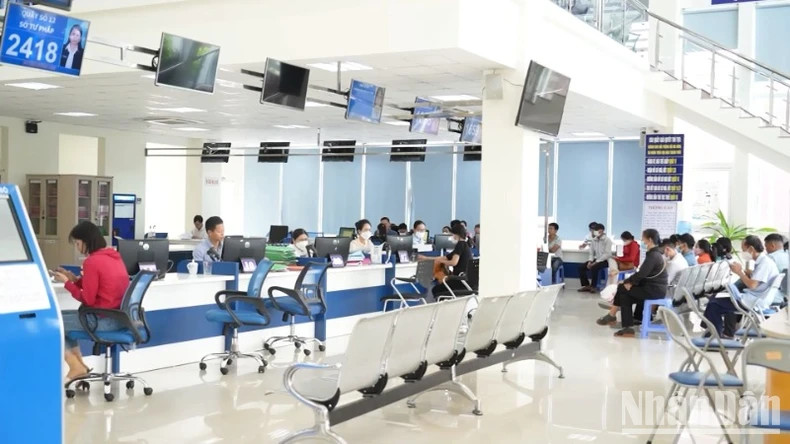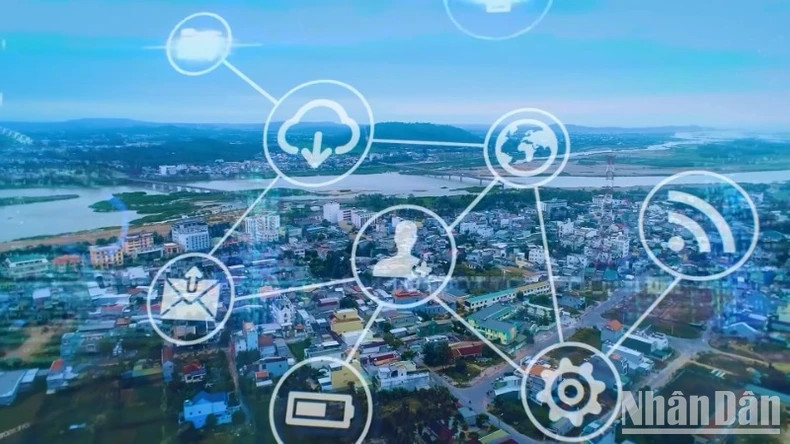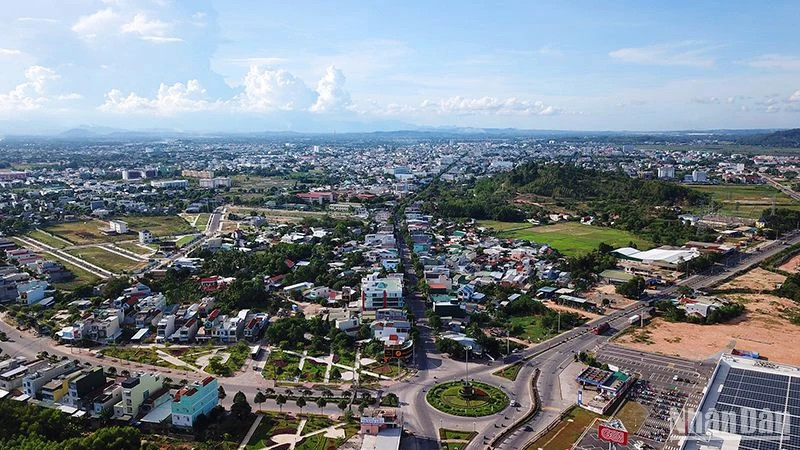In which, digital data is always an important and essential component of the digital transformation roadmap, requiring the government, businesses, agencies and units to promote development and proficient use.
Taking people and businesses as the centre of digital transformation
According to the Project of developing smart urban areas in the province until 2025 with a vision to 2030, Quang Ngai province will build an ICT architecture to develop smart urban areas of the province to ensure legality and technical standards; ensure the readiness of shared infrastructure based on mobilizing available resources, new investment combined with leasing information technology services; build a centralised database system, integrated and shared to serve management and operation; build a digital data warehouse, forming an open data system of fields such as: health, education, culture, tourism, transportation, environment, agriculture.
According to Director of the Department of Information and Communications of Quang Ngai province Tran Thanh Truong, developing e-Government towards digital Government along with smart cities is one of the important elements in digital transformation. Therefore, the People’s Committee of Quang Ngai province has approved the ICT architecture framework for developing smart cities in Quang Ngai province. This is a legal corridor, an important element in Decision No.950 of the Prime Minister, with two contents including the ICT architecture framework for developing smart cities and the Smart City Development Project.
 |
| Quang Ngai identifies people and businesses as the centre of digital transformation. |
“With the promulgation of this architectural framework along with the e-Government development framework 2.0, and soon 3.0, it is necessary to accelerate the implementation of digital transformation goals. That is to take people and businesses as the center, the goal, and the driving force of digital transformation,” said Tran Thanh Truong, Director of the Department of Information and Communications of Quang Ngai province.
Digital data is always an important component in building and developing digital government. In 2024, agencies and localities in the province will regularly use the province's shared systems and shared digital platforms to manage, operate and provide public services.
The provincial administrative procedure settlement information system has connected and integrated data with central databases and information systems to receive and resolve administrative procedures and exploit data. 100% of agencies at the department level have implemented digitalization of the results of handling administrative procedures that are still valid.
The province has invested in many types of digital infrastructure, exploiting many platforms, databases and information systems. Promoting the implementation of “data enrichment” for information systems and digital platforms such as electronic data storage, open data portal, civil servant App and citizen App and overall administration.
Quang Ngai city selected as a pilot to build a smart city
Quang Ngai city is a socio-economic centre, chosen by Quang Ngai province to pilot the smart city model in the Project on developing smart urban areas in Quang Ngai province to 2025, with a vision to 2030. This will be a central model for the province to summarize and draw experiences to move towards large-scale implementation in the next phase.
Currently, Quang Ngai city is completing database systems such as: GIS system in urban management, resources, environment and land, system for receiving feedback from people and businesses, real-time monitoring system for handling administrative procedures of people and businesses. At any time, any leader of the city can access the application on mobile phones to monitor the progress of public administration.
 |
| Quang Ngai province selects Quang Ngai city as a point to build a smart city model. |
At the same time, Quang Ngai city is aiming to build and deploy a model of a Smart Urban Monitoring and Operation Center to ensure the implementation of the functions of operation, supervision, support command and management of service quality provided by localities.
Chairman of the People’s Committee of Quang Ngai City, Tra Thanh Danh, said that Quang Ngai City will move towards integrating the monitoring and updating of socio-economic data between the city’s Finance and Planning Department with 23 communes, wards and the city's Statistics Office. Thereby, at each point in time, city leaders can access the database, know the city's socio-economic indicators to focus on leadership and direction.
“Along with the implementation and expectation of completing 3 groups of databases in 2025, Quang Ngai city will continue to build database systems associated with database digitization to integrate into a shared database large enough and strong enough to start a data-based operating model, making decisions in the city’s social governance”, informed Chairman of Quang Ngai City People’s Committee Tra Thanh Danh.
 |
| Quang Ngai city is focusing on building database systems associated with database digitisation to form a shared database serving urban governance. |
2025 is the final year to implement the goals set for the 2020-2025 period, in which the focus is on completing the construction of e-government, moving towards digital government.
The goal of the Quang Ngai province Smart City Development Project is towards rapid growth and sustainable development; exploit and promote potentials and advantages, improve the efficiency of resource use; optimize the efficiency of resource exploitation, improve the efficiency of state management, the quality of life of people and provide maximum utilities to serve people and businesses in their daily life, production and business development.
According to the Quang Ngai Province Digital Transformation Plan, by 2025, the province will complete the establishment of a shared database and specialised data in Decision No.862 dated July 4, 2022 of the Chairman of the Provincial People’s Committee on the list of shared databases. Continue to develop data, enrich data in existing databases, ensure data serves the direction and operation of the Provincial People’s Committee.
At the same time, strengthen connections, perform analysis, create new data using shared digital platforms, ensure data serves the operations of agencies and units, gradually ensure data serves the provincial digital government.
















